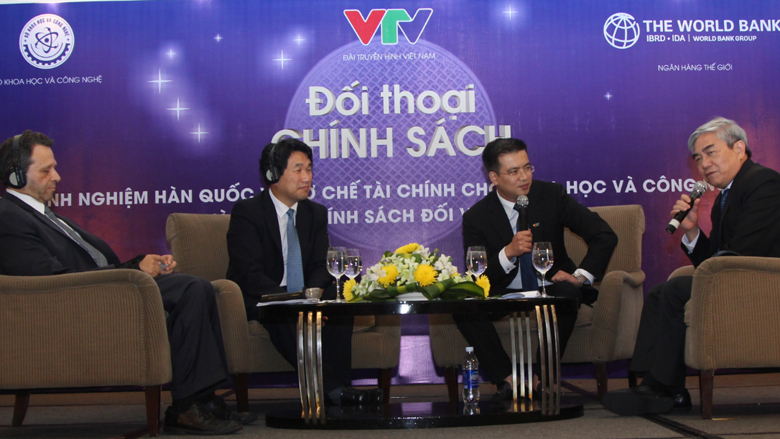At an urban management training for Vietnamese city leaders, Prof. Jai-Young Ryu, former senior advisor to Korea’s Minister of Construction and Transport, showed a foldable bicycle to a group of 30 Vietnamese city mayors. The bicycle, which could be folded and carried on buses and metro trains, is a component of an integrated transport system in Seoul that helps reduce congestion. Duong Trong Khanh, Vice Chairman of Ninh Binh City People’s Committee, said that solutions shared by the Koreans at the training were eye-opening and applicable for the rapid urbanization process in Vietnam.
Given the cultural and social similarities between the two countries, knowledge and experience from Korea is very relevant to Vietnam. In the past three years, under the Korean World Bank Partnership Facility (KWPF), the Vietnam Country Office has set up a knowledge exchange and training program which has covered a wide range of topics—from education, science and technology, to urbanization and project management.
“The program is very valuable in helping the Vietnamese government access practical and relevant development know-how as the country takes some steps that Korea has already gone through,” said Achim Fock, Portfolio and Operations Manager for the World Bank in Vietnam.
A demand-driven program
All activities are demand-driven and tailor-made to fit the country’s context.
In 2014, when the Government of Vietnam passed the Public Investment Law, the Ministry of Planning and Investment (MPI) was tasked with drafting the implementation guiding circular of the law. The Korean Trust Fund (KTF) supported the MPI task force to gain much needed practical experiences to carry out the task.
With funds from KWPF, the World Bank worked with the Korean Development Institute School (KDIS) to design a knowledge exchange for the MPI task force. A high level delegation from the Vietnamese government, including a senior advisor to the Prime Minister and President of the National Economic Think- Tank visited Korea to learn about the legal framework and practices of public investment management institutions, including innovations and the development of public-private partnership. The delegation also conducted field trips to public investment and economic development projects in South Korea, such as the Seoul Belt Road and the Incheon Bridge.
Learning from actual experiences from Korea on the ground, the Vietnamese delegation took many of the recommendations and came up with a proposal to set up an independent body to help the government in appraising all public investment projects.
New way of sharing solutions
Innovative approaches used by the program has helped in reaching a wide range of stakeholders and audiences in Vietnam.
In 2014, a live talk show on science and technology financing was participated by then-Vietnamese Minister of Science and Technology Nguyen Quan, Professor Ju-Ho Lee, former Korean Minister of Science, Technology and Education, and Michel Welmond, Program Leader for Human Development of the World Bank Vietnam. The discussion, broadcast on Vietnam’s largest national TV channel, helped pave plans to establish the Vietnam-Korea Institute of Science and Technology (V-KIST). The institute is now under development and will be managed the same way as its Korean counterpart, such as having a special financing mechanism to mobilize talented managers and researchers and make efficient use of resources.
According to Assistant Dean Hai-young Yun of the Capacity Building Center at KDIS, “We are delighted to share Korea’s economic development experiences with the developing world. In order to effectively enhance building the capacity of public officials, learning must be multifaceted and take place as knowledge exchanges, not as knowledge transfers. It should come from demands on the ground and should be a two-way sharing of knowledge.”
Luong Minh Phuc, Director of Urban-Civil Works Construction Investment Management Authority of Ho Chi Minh City, said that selecting the right solutions and the right way to exchange experience has been key to the success of the partnership. “We have learned a lot of new approaches and innovative ideas from our Korean counterparts. While there’s no one-size-fit-all solution, we can select the most relevant experience to apply in the context of Vietnam.”

